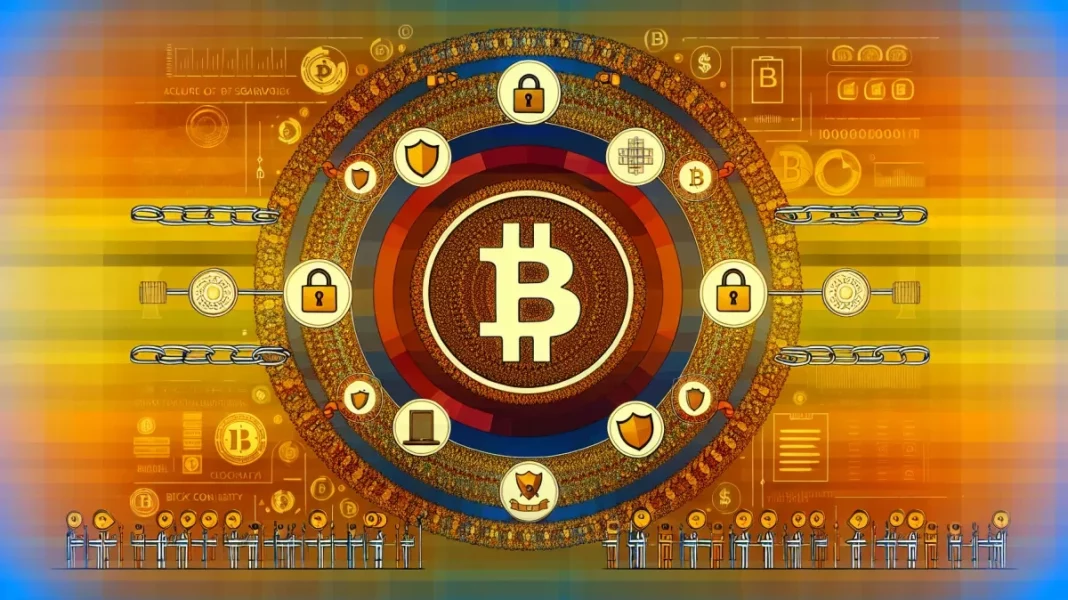In the ever-evolving landscape of online gaming, blockchain technology has emerged as a beacon of hope, promising a new era of trust, transparency, and security for gambling enthusiasts around the globe. As Bitcoin and other cryptocurrencies cement their status as legitimate, valuable currencies, they have inevitably infiltrated the gambling industry, leading to the blossoming of Bitcoin gambling platforms. But with this novel convergence of technology and entertainment comes a pressing concern: how can players ensure the security of their digital assets, and how can operators provide a gaming environment that upholds the highest standards of fairness?
The core advantage blockchain brings to the gambling arena is its decentralized nature. Unlike traditional systems, where a centralized authority oversees operations, blockchain networks are underpinned by a group of nodes that work collaboratively to record transactions. This distributed ledger technology (DLT) is transparent and immutable, two qualities that are paramount when dealing with monetary transactions. When applied to Bitcoin gambling, blockchain doesn’t just record transactions — it becomes a tool to engender fairness and trust.
Enhancing Transparency and Trust through Provably Fair Algorithms
One of the most groundbreaking applications of blockchain technology in online gambling is the implementation of provably fair algorithms. These cryptographic protocols allow players to verify the fairness of a game in real-time, assuring them that the outcomes are not manipulated. It’s a profound shift from the trust-me model to a show-me one.
In Bitcoin gambling, provably fair algorithms use hash functions and random number generators to produce a seed number for each bet. Players receive a hashed version of this seed, which acts as a fingerprint of the action, before the bet is placed. Once the game concludes, the operator reveals the original seed, and players can use it to verify the game’s result.
Strengthening Security with Smart Contracts
Smart contracts are another innovation brought forth by blockchain that are changing the game in Bitcoin gambling. Smart contracts are protocols programmed to automatically execute when certain conditions are met, without the need for intermediary oversight. In the context of gambling, smart contracts can manage the bet placement, the determination of winners, and the disbursement of winnings. This automation not only reduces the potential for human error but also severely diminishes the opportunity for fraud.
Addressing Regulatory Compliance through Blockchain
As Bitcoin gambling continues to grow, so does the scrutiny it faces from various regulatory bodies. Blockchain technology can aid in ensuring regulatory compliance through its inherent recording capabilities. Every transaction on a blockchain network is timestamped and linked to preceding and subsequent entries, creating an indelible audit trail.
Regulators pushing for responsible gambling, anti-money laundering (AML) protocols, and other measures to protect consumers can turn to blockchain as a tool to monitor and ensure compliance. With a blockchain-based gambling system, operators can efficiently manage and report on responsible gambling data, suspicious activities, and adhere to compliance regulations.
Countering Cyber Threats with Enhanced Security Measures
Cybersecurity is a major concern for any online platform, and Bitcoin gambling sites are no exception. The very nature of blockchain’s structure offers intrinsic protection against some of the most common cyber threats, such as unauthorized data access, by utilizing cryptographic encryption.
Despite these inherent security features, Bitcoin gambling sites must constantly evolve their security practices to counter emerging threats. They need to employ multi-factor authentication, employ the latest encryption standards, and regularly audit their networks to identify and rectify vulnerabilities.
Incorporating Decentralized Finance for Player Empowerment
The integration of decentralized finance (DeFi) protocols with blockchain gambling platforms is set to revolutionize player empowerment. DeFi projects that offer decentralized exchanges, liquidity pools, and yield farming can provide players with more control over their funds while playing on Bitcoin gambling sites.
DeFi’s non-custodial nature means players no longer need to trust their funds to a third-party service. Instead, with the use of smart contracts, they can engage directly with the platform, which provides reassurance that their assets are secure and readily accessible.
The Future of Blockchain in Bitcoin Gambling
As blockchain technology continues to mature, its application within the realm of Bitcoin gambling is sure to expand. From the potential of integrating non-fungible tokens (NFTs) to represent unique in-game assets to the development of new consensus mechanisms that facilitate even greater scalability and speed, blockchain is paving the way for a more secure, fair, and immersive Bitcoin gambling experience.
In conclusion, blockchain’s incorporation into the Bitcoin gambling sector brings a transformation that promises a higher standard of security, fairness, and regulatory compliance. This technology ushers in a new era where trust is not only desired but provable, where systems operate transparently, and where players can engage with peace of mind, knowing their digital assets are safe. As the technology matures and adoption widens, the fundamental question won’t be if blockchain can secure Bitcoin gambling, but how far its potential can reach. The stakes are high, and so is the commitment to utilizing this innovative technology to foster an environment that upholds trust and fair play in Bitcoin gambling.



